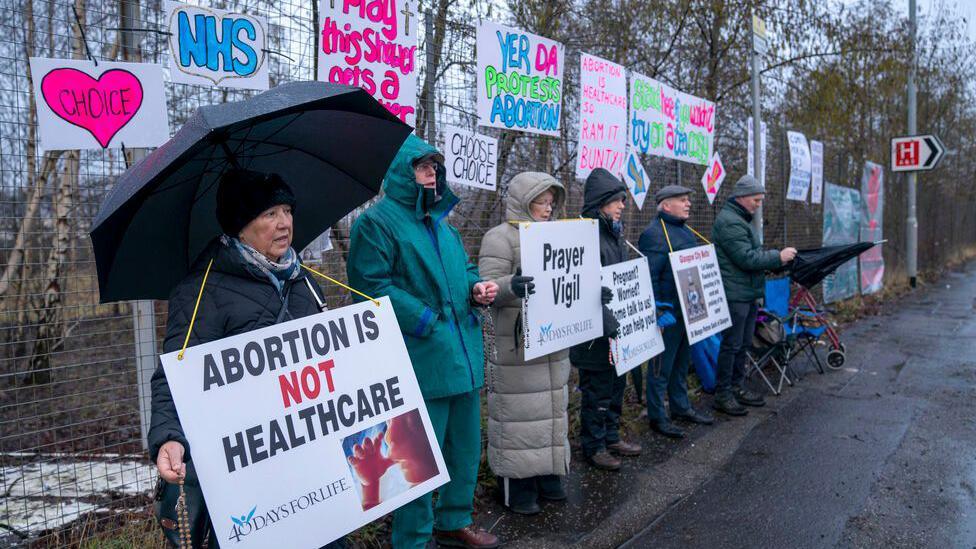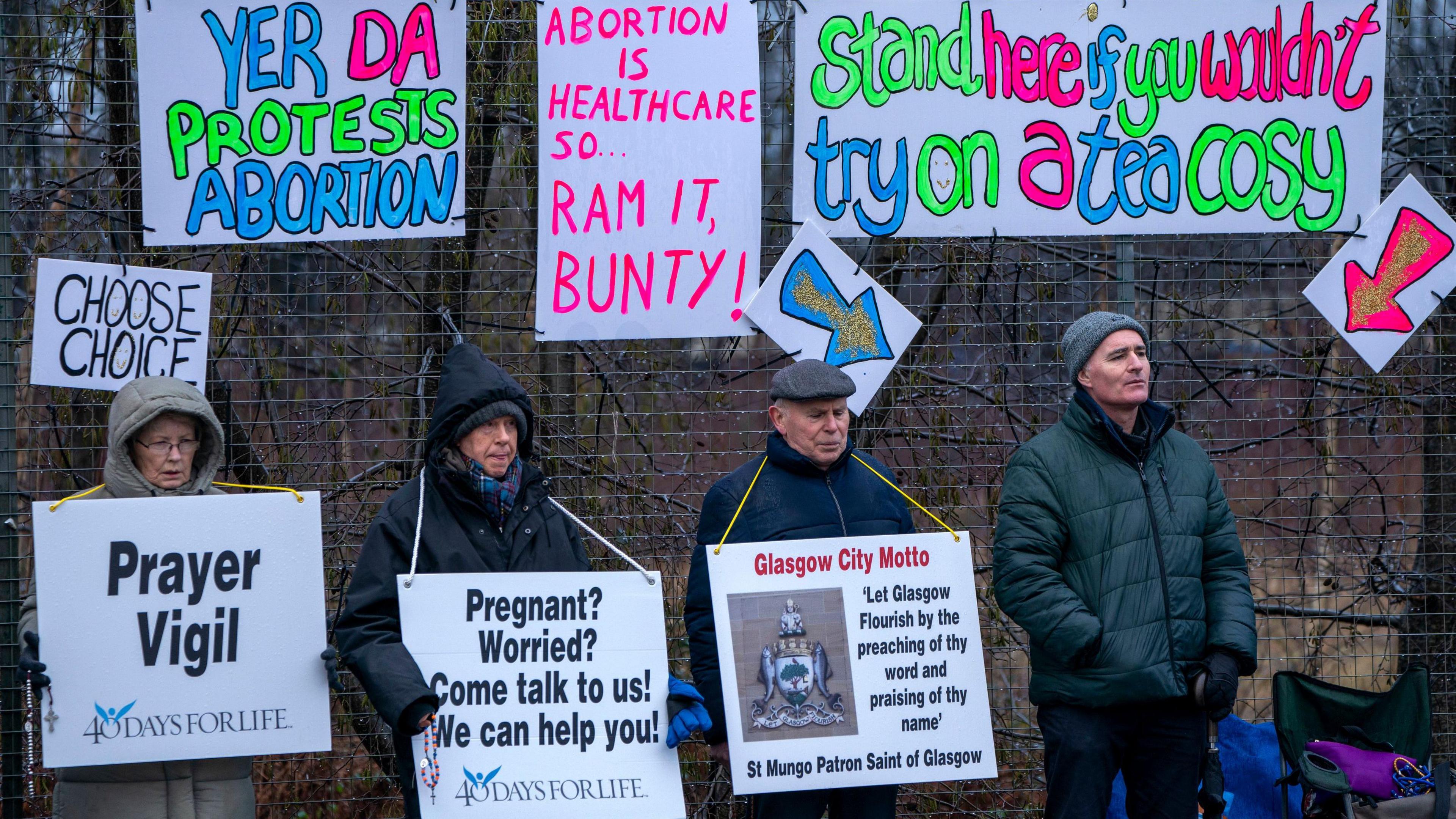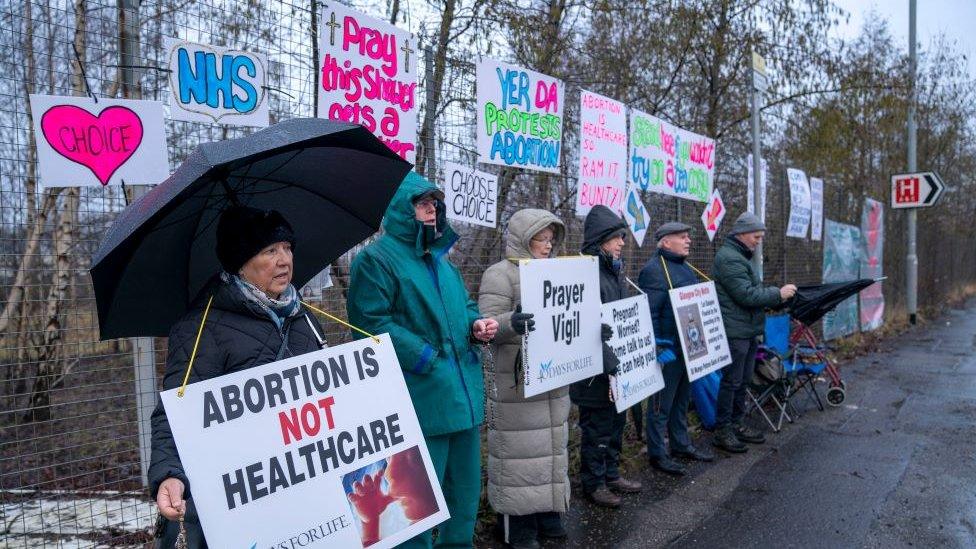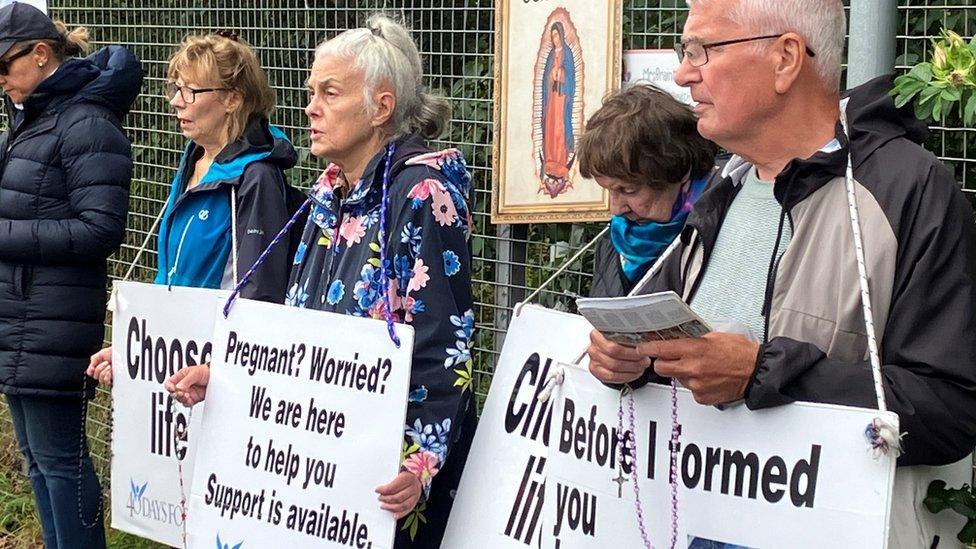Abortion buffer zones to take effect within weeks

Anti-abortion protestors regularly gathered outside the Queen Elizabeth University Hospital in Glasgow
- Published
Buffer zones around clinics offering abortion services in Scotland will come into force on 24 September.
The new law will prevent any protests or vigils from taking place within 200m (656ft) of 30 clinics around the country.
Opponents had claimed the legislation would infringe on freedom of religion, but it was passed overwhelmingly by MSPs in June.
Scottish Green MSP Gillian Mackay, who tabled the bill, said it was a "pivotal moment for reproductive rights in Scotland".
The clinics affected by the bill, external include the Queen Elizabeth University Hospital in Glasgow, the Royal Infirmary in Edinburgh and Dundee's Ninewells Hospital.
Within the buffer zones, it will be a criminal offence to behave in ways that could influence the decisions of women and staff to access services.
Stopping women and staff from entering the clinics or otherwise causing alarm, harassment or distress will also be an offence.
Anyone who breaks the new Safe Access Zone laws could be fined up to £10,000 or an unlimited amount in more serious cases.
'Organised intimidation'
The Abortion Services (Safe Access Zones) (Scotland) Bill, external passed by 118 votes to one.
Ms Mackay said she was "delighted" to have an implementation date for the bill.
She said: “For far too long, women all over Scotland have been forced to endure gauntlets of protesters with graphic banners and sometimes even megaphones trying to stop them from accessing the healthcare they are entitled to.
"It is organised intimidation and harassment, and it is wrong.
“The protesters have heard the same testimony as I have and know all about the pain, distress and hurt that they are causing for patients and medical staff.
"Now, at last, we are only weeks away from stopping them for good."
She thanked the Scottish government and parliament staff, medical bodies and campaign groups for supporting the bill.
Women's health minister Jenni Minto paid tribute to Ms Mackay for her work in progressing the Act, as well as the "women and staff who contributed to that process".
She added: “It is unacceptable for women to face any unwanted influence, distress or alarm when accessing abortion services.
"In bringing the Act into force, I hope women across Scotland hear the clear message that the Scottish government will protect their access to healthcare.
“People continue to have the right to free speech and protest in a democracy – however, no one has the right to interfere in women’s personal medical decisions."
'Criminalised for praying'
The charity Christian Action Research and Education (CARE) described the laws as "unnecessary and disproportionate".
Michael Veitch, policy officer at CARE for Scotland, said:
“The harassment pro-abortion campaigners alleged to be taking place was not borne out by evidence, including freedom of information data from Police Scotland. This policy has always been about curtailing the expression of views that people disagree with.
“The buffer zones law opens the door to: peaceful, pro-life Scots being criminalised for praying silently in public, Scots who live next to a buffer zone being arrested for displaying a pro-life slogan in the window of their private dwelling and Christian ministers being prosecuted for displaying a bible verse on a church building that borders a buffer zone.
"People are rightly questioning whether such outcomes are conducive to a free society."
Related topics
- Published12 June 2024

- Published14 February 2024

- Published27 September 2023
